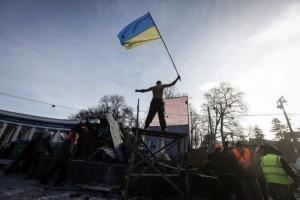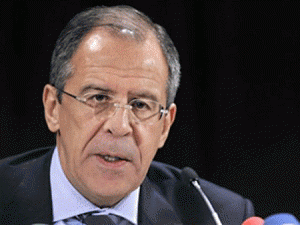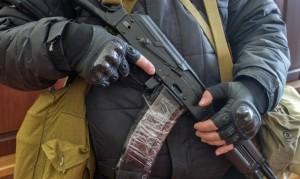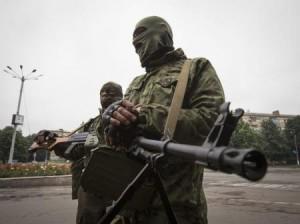Corruption Eats Away at Ukraine Military
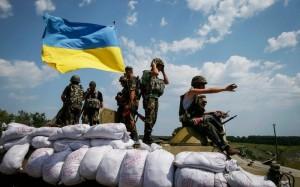
(The Daily Beast) — Sergei, as we’ll call him, shakes and slurs his words as he tells his story. We are sitting in a ragged park behind a McDonalds restaurant on the outskirts of the Ukrainian capital. Decaying Soviet tower blocks frame a children’s playground.
I met Sergei several hours after Ukraine’s first ceasefire came into effect in September. Since then, according to the United Nations, around 300 people have been killed in the bloodshed. While fighting has lessened, Ukrainian soldiers continue to die in the country’s southeast.
Sergei, a 20-something former hospitality worker, chain-smokes as he talks about his experiences in the region this past summer. Sergei says shells landed close to him three times. He received treatment at five different hospitals, he says, but he didn’t tell them just how badly injured he was.
That is because Sergei wants to return to the front as soon as possible. He wants to join his comrades.
While we are talking during that first encounter, a friend calls him to let him know that two more of their buddies are dead.
During Ukraine’s winter revolution, Sergei says, he “built barricades and threw Molotov cocktails.” The nearest thing to a war he had seen was February’s street fighting, when then-President Viktor Yanukovych was forced to flee the country. Then he signed up to join Kiev City’s 12th Battalion.
Sergei was wearing his uniform off-duty when I met him: a khaki t-shirt and a pair of army surplus pants. “I bought them myself,” he said, “because the ones they gave me fell apart after a few days.”
When the soldiers in the 12th Barttalion signed up to fight, they each were given a gun by the defense ministry. Nothing more. So their friends and families bought them everything else the men needed for battle. They collected money for helmets, bulletproof vests, medication and even vehicles.
But much of that gear went missing from the warehouse before the Kiev unit ever saw action.
“We saw all the ammunition in the depot; we saw the parcels full of gear that our friends sent us. But the equipment didn’t reach us after we left for the combat operation,” Sergei said. When the fighting began, the troops felt the loss immediately. Because the helmets had gone missing, two of Sergei’s comrades suffered head injuries.
Sergei blames his officers for the thefts. And as he sees it they were scarcely more qualified than he was to lead a group of green soldiers into battle. “They were trained along with us—by volunteers. And they got their jobs because of people they knew,” he claimed.
Sergei is not the only soldier who has complained about the conduct of the commander and the officers in the 12th Battalion. Military support groups protested to Ukraine’s current president, Petro Poroshenko, about the unit, and several claims in they letter sent by these groups fit with Sergei’s story.
In private correspondence obtained by The Daily Beast and dated September 6, two groups, “Return them Alive” and “Help the State Border Service,” allege that the 12th Battalion was set up as a racket. The document quotes an unnamed Ukrainian army official.
“According to Colonel B., the 12th Battalion was established as a business project, and has nothing in common with a combat unit,” the letter reads. “This information was confirmed by various military units that operated alongside the battalion in combat: ‘It performed none of the tasks assigned to it.’”
Whether Ukrainian authorities have actually investigated the claims against the battalion’s commander and its officers is unclear. In early September and again in October, The Daily Beast contacted the Kiev City Council, which recruited volunteers for the battalion, as well as the Ukrainian prosecution service and President Poroshenko’s office.
Prosecutors said they had received no correspondence concerning the case, while the president’s office and the Kiev City Council— which could not be reached in October—said they had no information on the matter.
But the letter’s author says she did have the letter passed on to Ukrainian authorities. Maria Tomak says a colleague presented the document directly to Poroshenko when he met with volunteers on August 21. She said she wrote the letter because the president is not permitted direct contact with soldiers.
Months after the letter was handed over, the support groups have not yet received a reply according to the activist, who however defended Ukraine’s military when approached over the leaked letter.
“Yes, there are problems with corruption in our army, it is not a secret,” Tomak wrote in a message. But, she added, “I can say also that compared to the fact of Russian aggression or compared to the attitude of the Kremlin towards Russian soldiers in Ukraine it is not so serious.”
The story of the Kiev 12th Brigade raises questions about the extent of graft in Ukraine’s army and in the volunteer brigades which have been set up by political parties, activist groups and local councils.
Defense analysts say that the Ukrainian army’s capabilities were strategically weakened under the Yanukovych administration. And the military support groups’ letter suggests that widespread graft has continued under its successors.
“We are people that—thanks to the help of the bulk of the population—provide the Ukrainian army with a wide range of things, from socks to viewfinders,” Tomak wrote in the support groups’ letter. “And we are under no illusion that this state of affairs is confined to one battalion.”
Corruption was one of the main reasons Ukrainians revolted against the Yanukovych government last winter. The country was ranked 144 of 177 nations surveyed by Transparency International in its 2013 graft perception index. And anti-corruption campaigners say that little has changed in certain parts of Ukrainian officialdom since the revolution. Although defense ministers have come and gone, the military command has remained largely unchanged so far, they say.
According to Iegor Soboliev, a former journalist whom the interim government tasked with purging the bureaucracy after the revolution, for months while Ukraine waged war little was done to fix a legacy of corruption and nepotism in the armed forces inherited from Yanukovych.
“This is suicide. [Politicians] receive serious reports about problems in the army and the secret service and they do not react,” said Soboliev, who complains that the government never gave him the powers he needed to exercise his supposed function.
In recent weeks, legal changes have given some hope that Ukraine’s government may finally take on corruption in the military. In September, amid intense street protests, the parliament passed a law targeting officials who served under Yanukovych’s government and included measures against corrupt officials. The law requires those screened to explain their properties and assets – along with those of their families.
But until now, there has been that little action on certain cases of military corruption. Fighter Sergei was hopeful that judicial investigations have begun into the 12th Battalion when I first met him in September. A month later, the soldier is less optimistic. He has received no reply from the government to the complaint he sent. And he is still in and out of hospital, along with 70 percent of the fighters in his brigade, he estimates, adding that to the other 30 percent who remain on the front line near Luhansk.
Sergei’s comrades there are still waiting for the armored personnel carriers promised by the defense ministry months ago, he says. Instead, the unit has received some rundown buses. The battalion also is short of ammunition, Sergei says, but he insists he would still like to return to battle. “If we had proper ammunition we could go on the attack and prevail within a week. They are mercenaries; we are fighting for our land. So we are unbeatable.”
Более подробно читайте здесь: IPnews
Three Ukrainian soldiers have been killed in the past
Three Ukrainian servicemen have been killed in the past 24 hours in fighting with pro-Russian separatists in the eastRussia’s Lavrov said he would seek an immediate
Russian Foreign Minister Sergei Lavrov said he would seek an immediate ceasefire in east Ukraine at talks in Berlin onU.N.: Ukraine death toll rises to more than 4,300
The death rate in the Ukraine conflict has increased in the past eight weeks despite the declaration of a ceasefire inUkraine accuses separatists of abusing Minsk deal with
(Reuters) — Ukraine on Tuesday accused pro-Russian separatists of taking advantage of a ceasefire deal signed lastНет комментариев.
Информация
Посетители, находящиеся в группе Гости, не могут оставлять комментарии к данной публикации.
